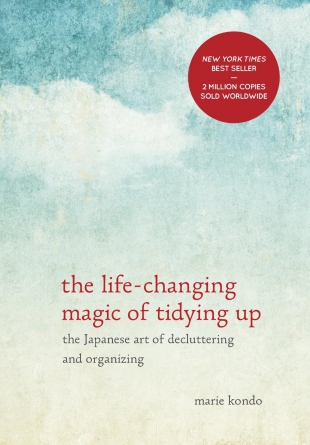"I began to treat my belongings as if they were alive when I was a high school student. I had my own cell phone. Although the screen was still monochrome, I loved the compact design and pale blue color. I was not an addicted user, but I liked my phone so much that I broke the school rules and slipped it into the pocket of my school uniform every day. I would take it out occasionally to admire it and smile to myself. Technology progressed and everyone was getting cell phones with color screens. I hung on to my outdated model as long as I could, but finally it had become too scratched and worn, and I had to replace it. When I got my new cell phone, I hit upon the idea of texting my old phone. It was my first replacement and I was probably feeling quite excited. After thinking for a moment, I typed the simple message 'Thank you for everything' and added a heart symbol. Then I pressed SEND. My oId phone pinged immediately and I checked my texts. Of course it was the message I had just sent. 'Great. My message reached you. I really wanted to say thanks for all you have done,' I said to my old phone. Then I closed it with a click.
"A few minutes later, I opened my old phone and was surprised to find that the screen was blank. No matter which button I pressed, the screen did not respond. My cell phone, which had never broken since the day I first got it, had gone dead after receiving my message. It never worked again, as if the phone, realizing that its job was done, had resigned from its post of its own accord.
"Of course, I know some people find it hard to believe that inanimate objects respond to human emotion, and it could indeed just have been coincidence. Still, we often hear about athletes who take loving care of their sports gear, treating it almost as if it were sacred. I think the athletes instinctively sense the power of these objects. If we treated all things we use in our daily life, whether it is our computer, our handbag, or our pens and pencils, with the same care that athletes give to their equipment, we could greatly increase the number of dependable 'supporters' in our lives. The act of possessing is a very natural part of our daily life, not something reserved for some special match or contest.
"Even if we remain unaware of it, our belongings really work hard for us, carrying out their respective roles each day to support our lives. Just as we like to come home and relax after a day's work, our things breathe a sigh of relief when they return to where they belong. Have you ever thought about what it would be like to have no fixed address? Our lives would be very uncertain. It is precisely because we have a home to return to that we can go out to work, to shop, or to interact with others. The same is true for our belongings. It is important for them to have that same reassurance that there is a place for them to return to. You can tell the difference. Possessions that have a place where they belong and to which they are returned each day for a rest are more vibrant.
"Once my clients have learned to treat their clothes with respect, they always tell me, 'My clothes last longer. My sweaters don't pill as easily, and I don't spill things on them as much either.' This suggests that caring for your possessions is the best way to motivate them to support you, their owner. When you treat your belongings well, they will always respond in kind. For this reason, I take time to ask myself occasionally whether the storage space I've set aside for them will make them happy. Storage, after all, is the sacred act of choosing a home for my belongings."
